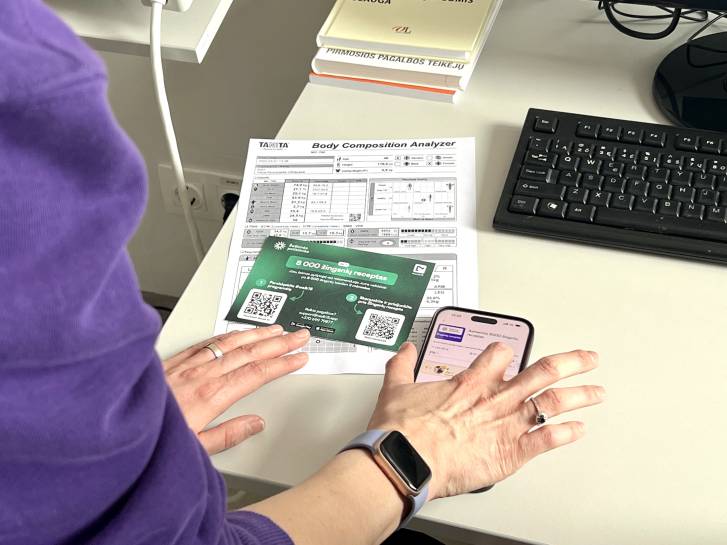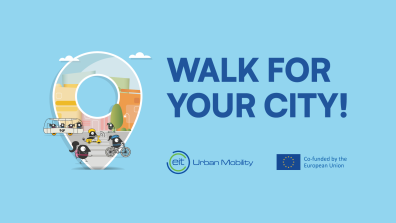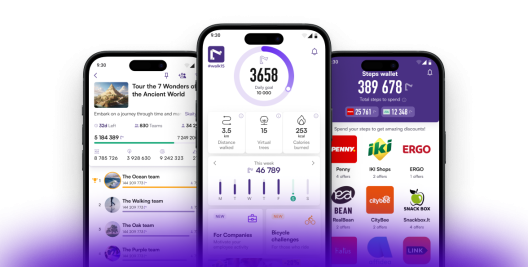Walking is agreed to be the most natural and universally acceptable form of movement, which also offers many benefits. Doctors affirm that regular walks can serve as prevention for 40 different diseases, improve emotional well-being, mood, and productivity. Due to these reasons sustainable mobility platform “Walk15” in collaboration with Šeškinė Polyclinic (Vilnius, Lithuania), is introducing a new way of treatment - personal step prescriptions.
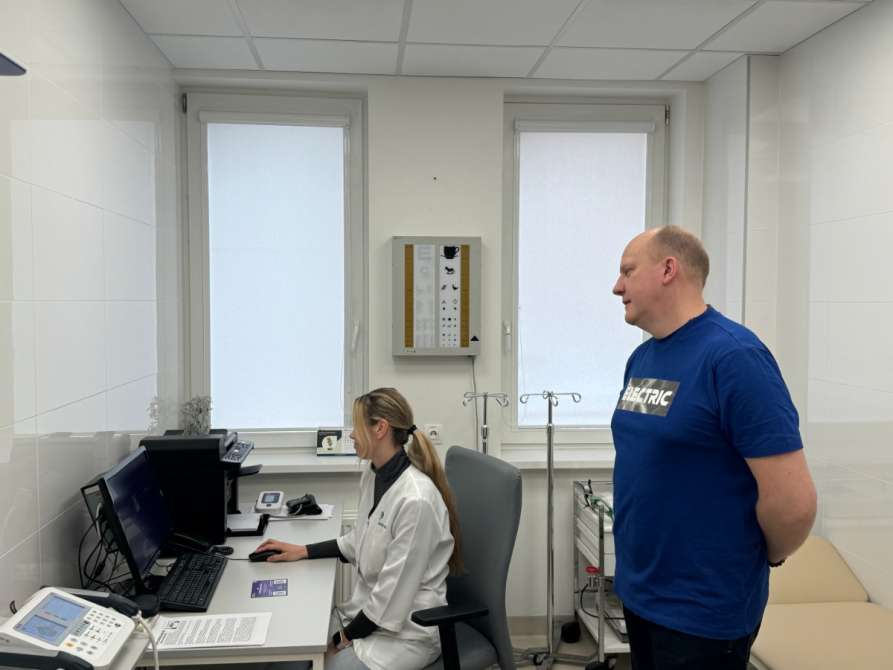
Steps instead of medication
“Why do we only get prescriptions to get better? Why can't we get prescriptions to stay healthy? The goal of this new pilot project is to promote and educate people about the importance of physical activity and wellness”, says Vlada Musvydaitė-Vilčiauskė, the author of the idea and the founder of the sustainable mobility platform “Walk15”.
4, 8, or 10 thousand steps per day - these are three prescriptions that family doctors at Šeškinė Polyclinic can now prescribe to patients. With a step prescription, the patient is directed not to a pharmacy, but to the free mobile walking app #walk15, which unites over 650 thousand users.
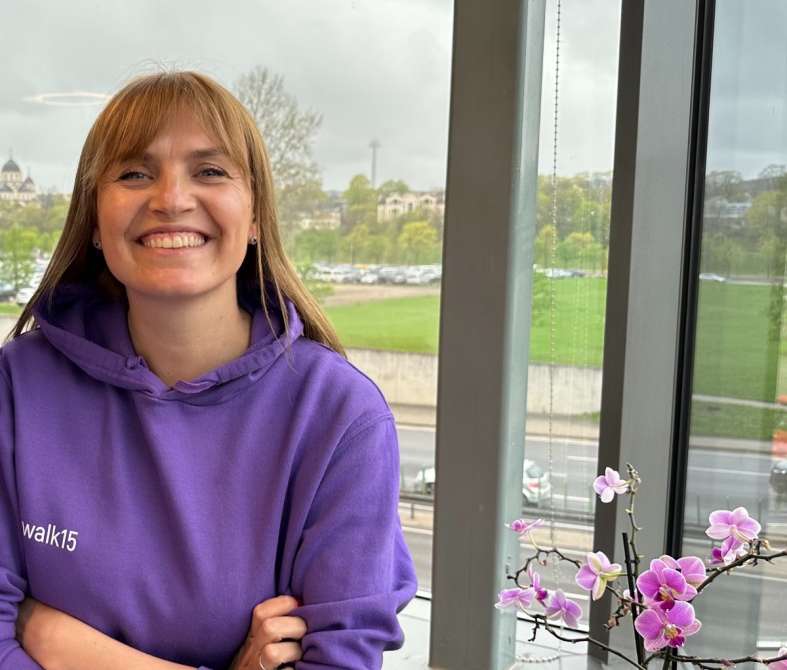
“The app becomes like a pharmacy for steps. After receiving the prescription, the patient scans the QR code on their phone and sees a step program personalized for them. The challenge is to walk for three months at the activity level recommended by the doctor”, explains the CEO of “Walk15”.
It is expected that this innovative, globally unique solution will not only contribute to disease prevention but also help save funds allocated for healthcare.
Assessing real patient actions
Family doctors who enthusiastically agreed to participate in the pilot project state that for the first time, they will have the opportunity to see how well patients implement the treatment prescribed to them.
“It has been proven that low physical activity is a risk factor for the development of chronic non-communicable diseases. Data from various studies conducted in Lithuania indicate low levels of physical activity among adults, but encouraging them to be physically active is difficult without appropriate and easily applicable monitoring and self-monitoring tools. The step prescription offered to our patients is precisely that. An app that not only encourages people to walk but also ensures personalized care and consultations from doctors. And individual consultations with specialists, where patients are periodically informed about their health status, usually have a positive effect on increasing long-term physical activity”, says Miglė Budrienė, coordinator of this project at Šeškinė Polyclinic.
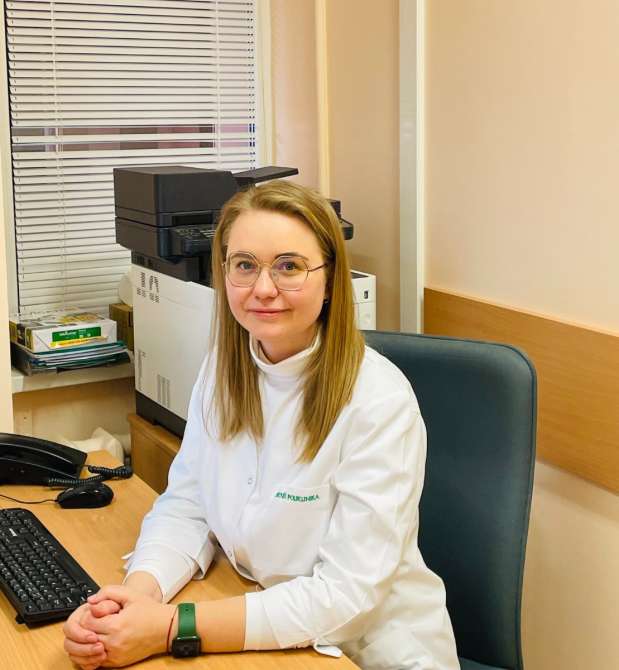
When issuing a step prescription, the family doctor also performs a body composition analysis using advanced analyzers, which is repeated twice later on. This evaluates the impact of the personalized wellness program on the individual.
According to M. Budrienė, the World Health Organization recommends that adults spend a greater portion of their week being physically active, with at least 30 minutes a day being active, preferably every day. This recommended time can be divided into smaller intervals but not shorter than 10 minutes. Even shorter durations of physical activity have a positive effect on health. Movement helps to feel physically, socially, and emotionally well. Of course, if a person has lived a sedentary life for a long time, the level of activity should be gradually increased. And it's best if such a person can consult with healthcare professionals.
Patients who accept the step challenge receive virtual wellness advice prepared by movement, sports, and health sciences professor Albertas Skurvydas. In case of technical questions or difficulties, patients are promptly assisted by the #walk15 app's customer service team every day.
First prescriptions already issued
The pilot project at Šeškinė Polyclinic has already begun. The target audience for the project is young people aged 12-29 and individuals aged 30-65 with chronic diseases (type 2 diabetes, hypertension, obesity).
In the first stage, step prescriptions will be issued by four family doctors at Šeškinė Polyclinic. If the pilot project is successful, the program of personalized step prescriptions will be expanded.

“Our goal is for walking to become part of treatment programs. It's usual for us to go to the pharmacy and get medications prescribed by the doctor for headaches. But what if instead of them, the doctor recommends taking 5 thousand steps?”, says V. Musvydaitė-Vilčiauskė.
Various studies already show that regular physical activity has benefits sometimes comparable to medication. Walking can help prevent cardiovascular diseases, fight type 2 diabetes, asthma, and other diseases. Moreover, it's one of the best ways to improve emotional well-being, reduce stress, anxiety, and the risk of burnout.
Professor A. Skurvydas advises being active at least 3-5 times a week. According to the professor, the "golden average" of steps for a healthy person is 10 thousand steps. He suggests that 3 thousand of them should be taken with higher intensity to increase the heart rate to 120–140 beats per minute.

